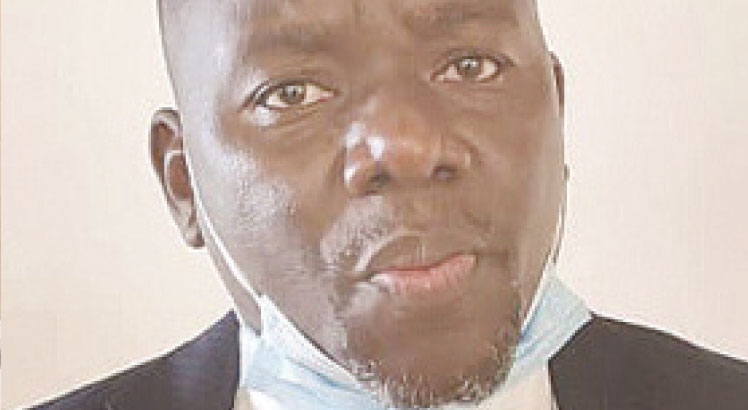Justice delayed, justice denied
F
or the first time, the Judiciary has spoken out against accusations that it is stalling cases by failing to set dates and assign judges or magistrates to preside over them.
Supreme Court of Appeal and the High Court of Malawi registrar Kondwani Banda told Weekend Nation in a written response this week that most times the public and other stakeholders have a wrong perception of how courts operate and end up judging the courts harshly.
Said Banda: “Delays to set dates and speedily complete some cases in the courts, are a shared blame between parties, and not the responsibility of the courts alone.
“Most cases also delay because of adjournments sought by both the defence and the prosecution team, but such delays are overlooked yet they form part of the litigation process.”
He added that unavailability of witnesses and lawyers also delays the process as courts are forced to adjourn proceedings in the interest of justice.
Said Banda: “The problem involves all parties to the case. We have the Prison Directorate which sometimes is constrained with release orders for suspects answering charges while on remand. We also have the police and defence teams, who also have their challenges and excuses. Litigation is not tried in the newspapers.”
The low number of magistrates and judges handling so many cases is another factor that delays prosecution, according to Banda.

Recently, the Anti-Corruption Bureau (ACB) reacting to concerns from members of the public that it is not moving fast enough to prosecute some high-profile cases, especially those related to UK-based businessperson Zuneth Sattar, said it is ready for all the cases and is only waiting for courts to set dates for hearing.
Some of the cases include that of former minister of Lands Kezzie Msukwa, which is in the appeal court and no date has yet been set after Supreme Court judge Frank Kapanda stayed a ruling of the High Court eight months ago, pending a hearing in the apex court.
The other involves former Inspector General of Police George Kainja, who the bureau arrested on June 23 2022 for allegedly receiving bribes from Sattar to influence the awarding of a contract to him to supply 350 000 food rations. The bureau said it is also waiting for the courts to set a date for hearing.
ACB spokesperson Egrita Ndala earlier said for the cases moved to the newly-established Financial and Economic Crimes Court, the graft-busting body has been waiting for a date and judge to be assigned.
There is also a case involving Vice-President Saulos Chilima and the bureau said it was working on an application to commit it to the Financial and Economic Crimes Court.
But governance expert Charles Kajoloweka, who is also executive director of Youth and Society, insisted that while, indeed, some delay is caused by parties to the matters, the effect of such instances on the overall delay of judicial proceedings is dismal.
In an interview on Thursday, Kajoloweka said: “In most cases, delays are caused by the judges or magistrates presiding over matters. Even in instances where parties attempt to delay the proceedings, the courts have the discretion to decline adjournment of cases.”
But another governance and human rights commentator Gift Trapence observed that the delays border on access to justice and; therefore, finger-pointing will not resolve the issues.
Trapence, who is national coordinator for Human Rights Defenders Coalition, said the challenges can be resolved administratively.
Last month, Malawi Law Society (MLS) president Patrick Mpaka told members at the society’s recent annual general meeting in Mangochi that when an MLS-Judiciary special task force started engaging judges at the High Court’s Commercial Division over delayed cases, the Judiciary protested and described MLS’ move as “interference with the independence of the Judiciary”.
In trying to clear the backlog of cases, Chief Justice Rizine Mzikamanda in May last year gave all judges with outstanding judgements 90 days to clear them.
Banda said most of the judges delivered on the assignment.
He said: “People must understand that we still have new cases being registered every day against the same number of judges and magistrates.”
As of 2019, about 6 766 people seeking justice through the Industrial Relations Court were yet to know their fate on cases, some dating back to 1999.
Between 1999 (when the court was established) and September 2012, the case backlog stood at 2 480. During the period, the court registered 6 392 cases and concluded 3 912, according to a list the court compiled and published in the newspapers.
In October 2021, the Judiciary asked for a fixed annual budgetary allocation of three percent of the national budget to effectively deal with case backlog that included about 400 homicide cases and to increase the number of judges to handle homicide cases.
The then Supreme Court and High Court of Malawi registrar Gladys Gondwe said top of the Judiciary’s reform agenda was securing a fixed percentage of the national budget.
“We are asking for three percent which is yet to be implemented. If this were implemented, the Judiciary would have adequate funds to meet the current demand for homicide trials,” she said.
Although 12 judges had just been appointed, Gondwe said more judges and support staff such as court clerks and translators were still needed.
The 2021/22 National Budget was pegged at K1.9 trillion whose three percent translated to K57 billion.





